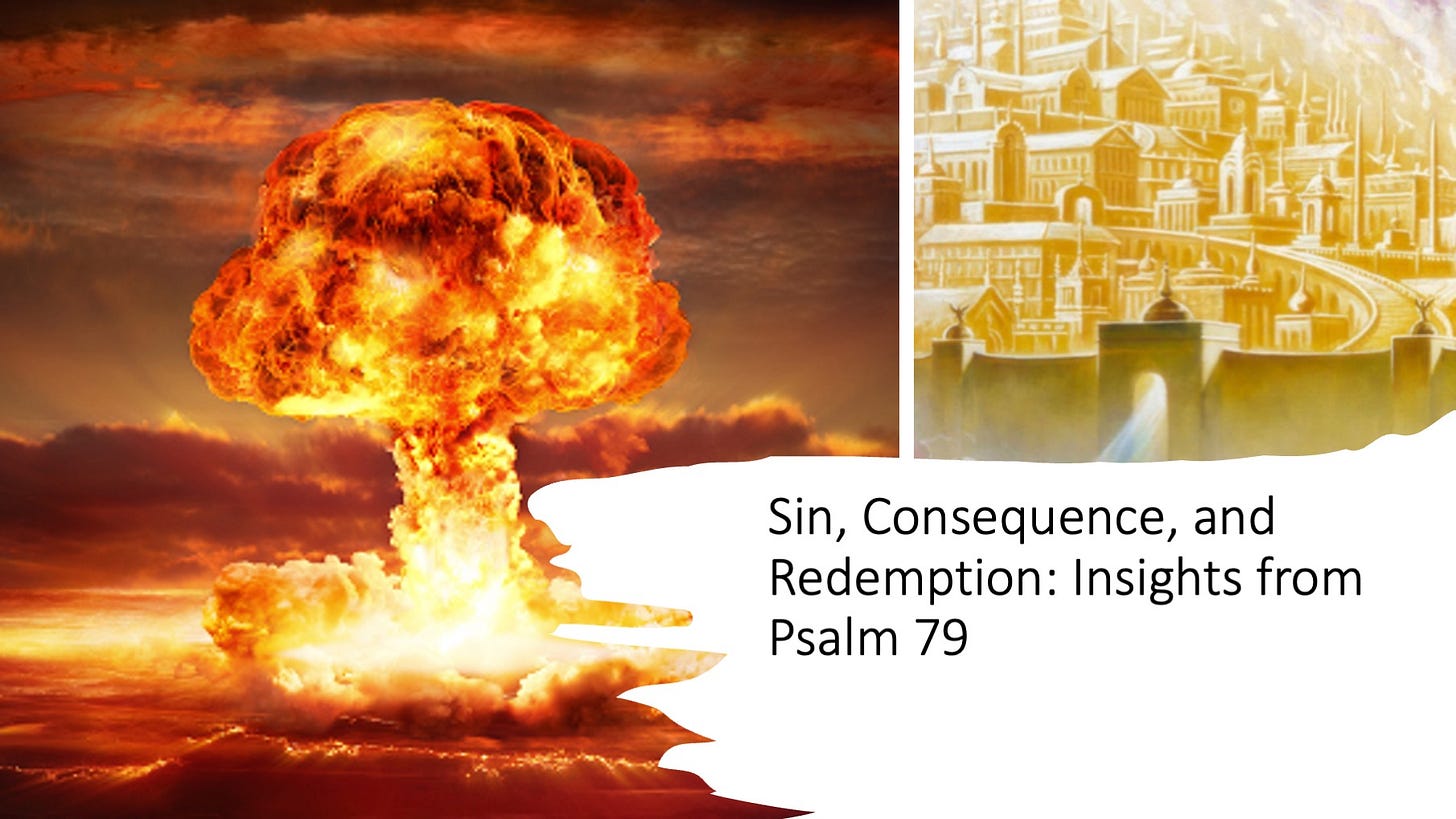Sin, Consequence, and Redemption: Insights from Psalm 79
October 6, 2023 - Friday, 26th Week in Ordinary Time
Psalm 79:1b-2, 3-5, 8, 9
There was a conviction in ancient Israel that Jerusalem was inviolable and indestructible. In their view, the Lord would never allow his temple and his city to be destroyed. When the Assyrians invaded Judah and surrounded Jerusalem in 701 BC, the Lord spoke through Isaiah: “I will defend this city to save it, for my own sake and for the sake of my servant David” (Is 37:35). And so it happened. The Assyrians aborted the siege of the city and left home defeated by God. But when the Babylonians came in 586 BC, the Lord did not defend Jerusalem. They defiled the temple and left Jerusalem in ruins (see Ps 79:1).
Psalm 79 is a psalm of lament over the destruction of Jerusalem. The psalmist expresses his pain and grief over the tragedy that befell the beloved city and its temple. And he has difficulties comprehending how the Lord could allow this to happen. In view of the psalmist, the tragedy affected not just the people but also the Lord. The Babylonians boasted that their gods were more powerful than the Lord and scornfully asked the Israelites: where is your God (see Ps 79:10)?
The psalmist pleads with the Lord: “Help us, O God our saviour, because of the glory of your name; Deliver us and pardon our sins for your name's sake” (Ps 79:9). And God heard his prayer. The second part of the book of Isaiah begins with the statement that the iniquity of Jerusalem was pardoned and that “she has received from the LORD's hand double for all her sins” (Is 40:2). Thus, it was not their gods that helped the Babylonians to defeat the Jewish nation; they were just a tool in God’s hands to execute his educational punishment over his people. Moreover, less than 50 years after the destruction of Jerusalem, the mighty Babylonian empire was gone forever.
Psalm 79 shows us the connection between sin and its tragic consequences. We know countless stories of people who by committing sins ruined their lives and the lives of people around them. Saint Paul profoundly said that “the wages of sin is death” (Rom 6:23). But, psalm 79 also indicates that no matter how deep we have fallen into the depth of sin, God’s mercy can always reach us there and lift us up.
In our Catechism, we find this powerful proclamation: "There is no one, however wicked and guilty, who may not confidently hope for forgiveness, provided his repentance is honest. Christ who died for all men desires that in his Church the gates of forgiveness should always be open to anyone who turns away from sin” (CCC, 982). Seventy years after the destruction of Jerusalem, a new temple was constructed and the liturgical celebrations that praised God for his greatness and mercy resumed. God’s mercy always triumphs over our sins and empowered by His grace, we can begin a new life in righteousness and faith that leads to everlasting life (see Rom 5:20-21).




